VOL.58
January 2020


News — ETRI Issue
Headline News
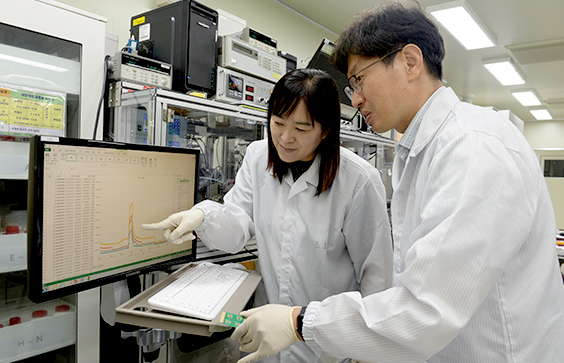
Development of an electronic nose that diagnoses lung cancer from outbreath
An ETRI research team has developed an “electronic nose” that helps diagnose lung cancer from a person’s exhalation. It is expected to provide a cheap and safer diagnosis of lung cancer that dispenses with the need to use radiation-based X-rays.
The ETRI researchers have announced that the technology is based on the development of a sensor that detects volatile organic compounds generated by lung cancer from a patient’s exhalation, and a machine learning algorithm that determines the level of cancerous substances. The details of the technology have been published in the international journal Sensors & Actuators.
The researchers have also reported that they were inspired by the fact that a human nose works through nerve cells. With this system, an electronic device smells respiratory gas just as a human nose does, and then converts the collected data into electric signals, whence its name - “electronic nose.”
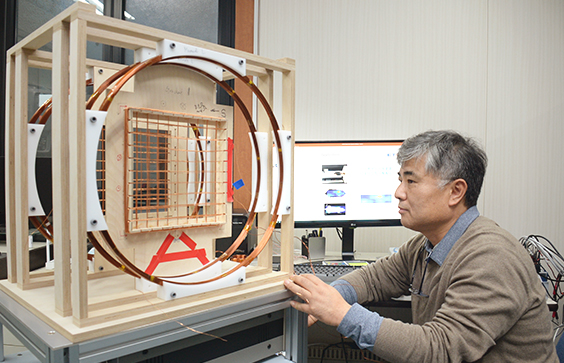
Diagnosing cancer without using radioactive materials
A team of ETRI researchers has developed a technology for diagnosing cancer without using radioactive materials. The new item of medical imaging equipment developed with the technology can diagnose cancers and other illnesses by identifying the locations of iron oxide magnetic particles. This safer, lower-cost technology is expected to contribute to improving public health and boosting the domestic market for medical imaging equipment.
The research outcome is scheduled for publication in the international journal Scientific Report. The technology could replace positron emission tomography (PET), one of the most efficient pieces of medical imaging equipment, and has already been proven to be safer and to cost less than MPI because it uses iron oxide magnetic particles.
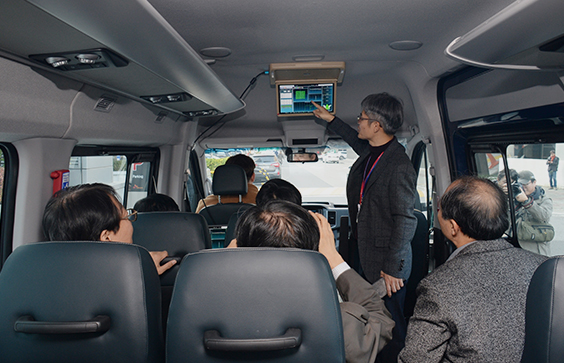
ETRI successfully tests Giga-level Wi-Fi in public buses
On November 28th, ETRI announced that it had successfully demonstrated an up-to-date Wi-Fi communication system in public buses. The research project reflects the expansion of the public Wi-Fi service promoted by local governments in conjunction with mobile communication firms. Public buses in some metropolises are already providing the Wi-Fi service on a trial basis.
At present, the Wi-Fi services provided on public buses are based on the LTE technology, whose transmission speed is limited to about 20Mbps because only a part of the LTE frequencies is utilized. In addition, the speed decreases further still when a bus is carrying many passengers or when the passengers consume large amounts of data. The ETRI team has attempted to address this problem by developing a backhaul communication system that connects buses with land base stations via the 22GHz-band millimeter wave. The ETRI team has named it the “moving network”
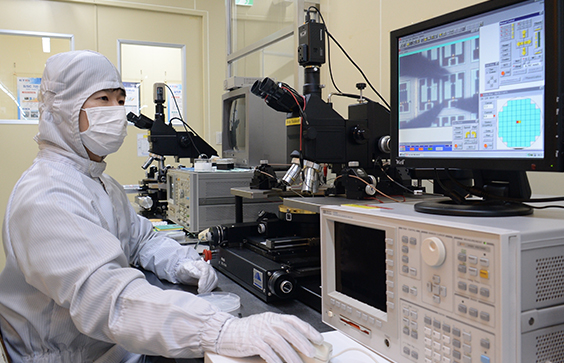
ETRI develops 200W gallium nitride power device
An ETRI research team has developed a technology for localizing the production of high-output power devices used in military radars and mobile communication bases. It is expected to help reduce Korea’s dependence on foreign equipment and help overcome the difficulties posed by Japan’s export controls.
The S-band, 200W gallium nitride power device was developed wholly by local engineers, from design and production to measuring and packaging. The term “S-band” refers to the 4GHz frequency band, which is widely used in military radars, 5G mobile communication, Wi-Fi, and Bluetooth communication.
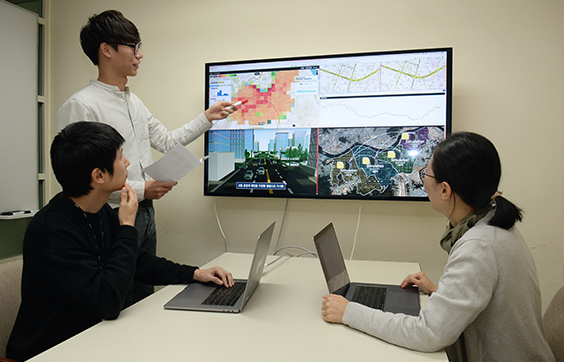
ETRI develops software to tackle traffic congestion
An ETRI research team has developed simulation software to predict the effects of traffic control policies. The system is designed to handle data rapidly and conduct cloud computing-based analysis, enabling its application to any city.
ETRI has reported that the method, called “SALT,” can predict the impact on traffic flow of new traffic light sequences and other traffic control policies by simulating various situations.
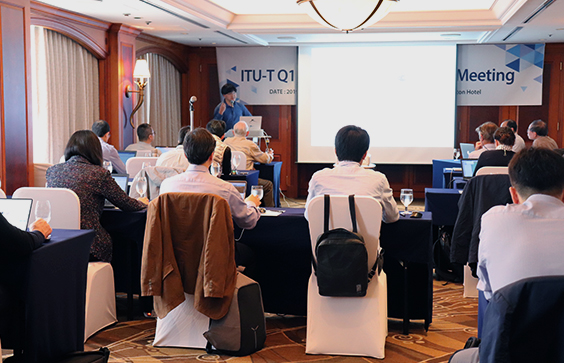
ETRI sets out to standardize the quantum cryptography transmission system
An ETRI research team, in collaboration with various mobile communication firms, has launched a program aimed at standardizing the commercial quantum cryptography transmission system. The research is expected to contribute to commercializing quantum cryptography communication and improving the related services.
The ETRI project received positive responses from about 30 participants in the SDN/NFV Forum and an international standardization conference held at the Millennium Hilton Hotel in Seoul on October 21.



